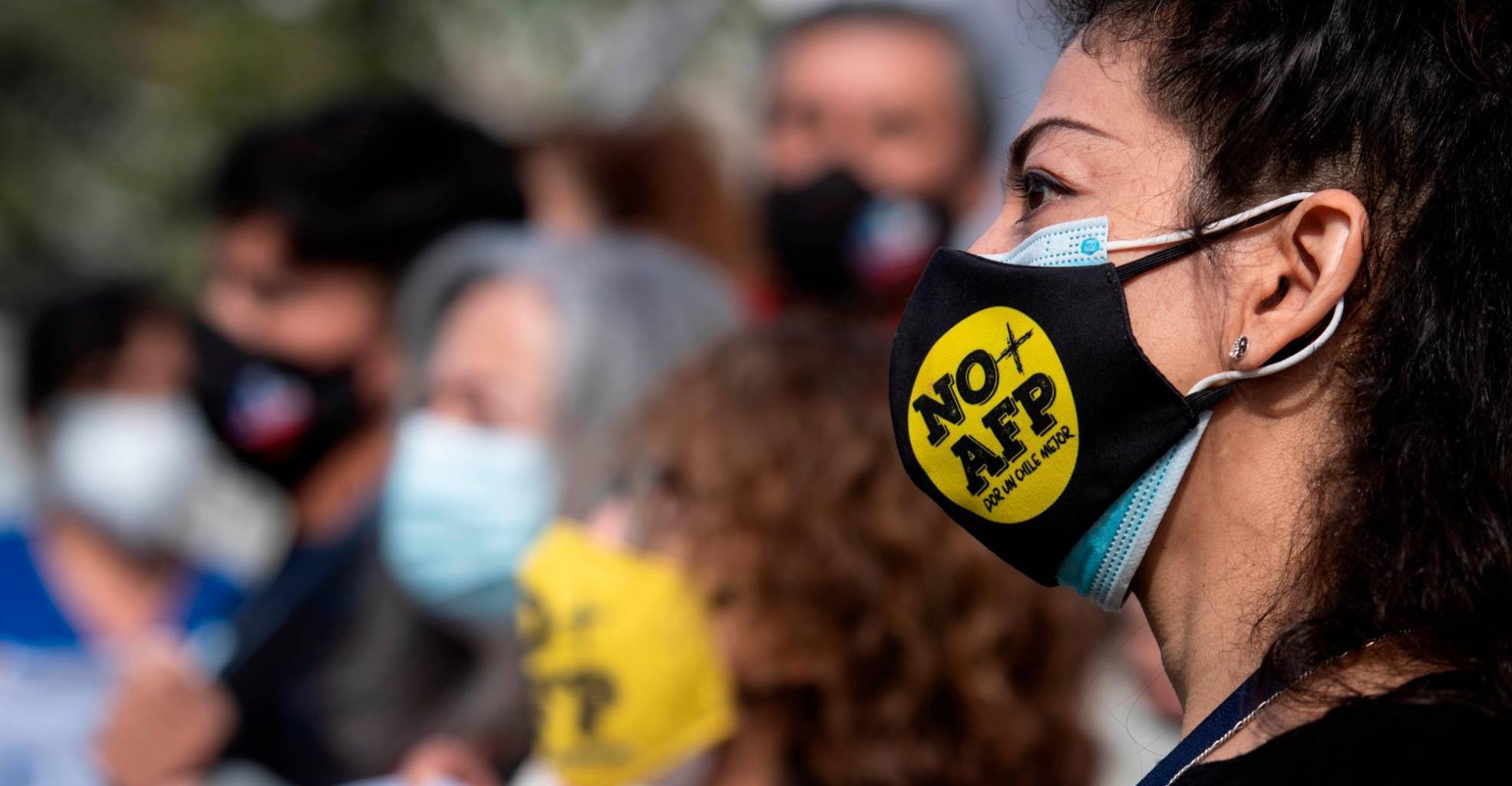RIO DE JANEIRO, BRAZIL – Friday’s overwhelming approval in the Chilean Parliament of a bill that allows citizens to withdraw 10% of their pension funds early left the government of conservative Sebastián Piñera alone in its attempt to stop the measure in the courts.
The parliamentarians, among them some members of the ruling party, endorsed with 119 votes in favor, 17 against, a bill that seeks to help the depleted Chilean middle class face the economic crisis caused by the pandemic; a measure that has great popular support -more than 90% of the citizens, according to surveys.

This is the third measure of this type that the Chilean Parliament has approved since the pandemic began, after those approved in July and December of last year, when members of the private pension system withdrew more than US$36 billion.
The new withdrawal was promoted when Chile is going through the worst moment of the health crisis, which forced the imposition of massive quarantines and which is entailing the end of thousands of businesses that had managed to save themselves from the 2020 confinement, a year in which the national GDP suffered a 5.8% drop.
According to its sponsors, the US$18 billion announced by the Government for social aid are insufficient and “are not reaching the population”.
“It is not understood why the President is so stubborn and does not listen to Congress or the people”, said Socialist Deputy Maya Fernández after the vote.
For the pro-government representative Eduardo Durán of Renovación Nacional (RN, center right), “we are at a moment in which we must all make ourselves available for what the country demands”.
Will it come into force?
Under the argument that the withdrawal is unconstitutional because it mortgages the future of Chileans and would leave almost 5 million of the 11 million members of the system without pension savings, the Government went to the Constitutional Court on Tuesday to block it.
Since then, every night, pots and pans have been banging against the government in different cities of the country, and there have already been at least a dozen people arrested in protests and barricades.
The left-wing opposition is also studying the possibility of subjecting Piñera to an impeachment trial in Parliament “for having failed in his duties” in managing the pandemic.
The pressure is also intensifying in the political environment of the ruler after a group of 15 pro-government parliamentarians sent him a letter on Friday asking him not to block the third withdrawal.
However, government officials said that they are not going to back down, but they assured that they are studying “alternatives”, admitted the official spokesman, Jaime Bellolio.
If the Constitutional Court rejects the Government’s appeal, the validity of the withdrawal depends on Piñera’s promulgation, while if it accepts the request, it would have to wait for the court to issue a final resolution.
The second withdrawal was also challenged by the Government, which presented a new bill that included the payment of taxes by the wealthier individuals to finance the withdrawal of funds.
Model questioned
For the progressive think-tank Fundación Sol, the withdrawal of funds is “a bad public policy” because it implies that the workers themselves pay for the crisis, but “its coverage is 4.5 times higher than the middle-class bonus (a package launched by the Government) which would only reach two million people”, compared to the 7.5 million that could benefit from the third withdrawal.
For its part, the Organization for Economic Cooperation and Development (OECD), to which Chile belongs and is made up of the richest countries globally, advised against its approval because “most people in the future will not have enough savings to finance pensions.”
“The Covid-19 is being fought with state funds but not with pension savings, which will generate a severe problem in the pension system tomorrow,” said Pablo Antolín, the OECD’s chief economist for private pensions, on a local radio station.
Replicated in the 1990s in much of Latin America and a pioneer in individual capitalization, the Chilean pension model is nowadays strongly questioned due to the insufficient pensions it provides, compared to the multi-million profits of the private companies that manage the funds, and there are more and more voices calling for a move towards a more solidarity-based model.

